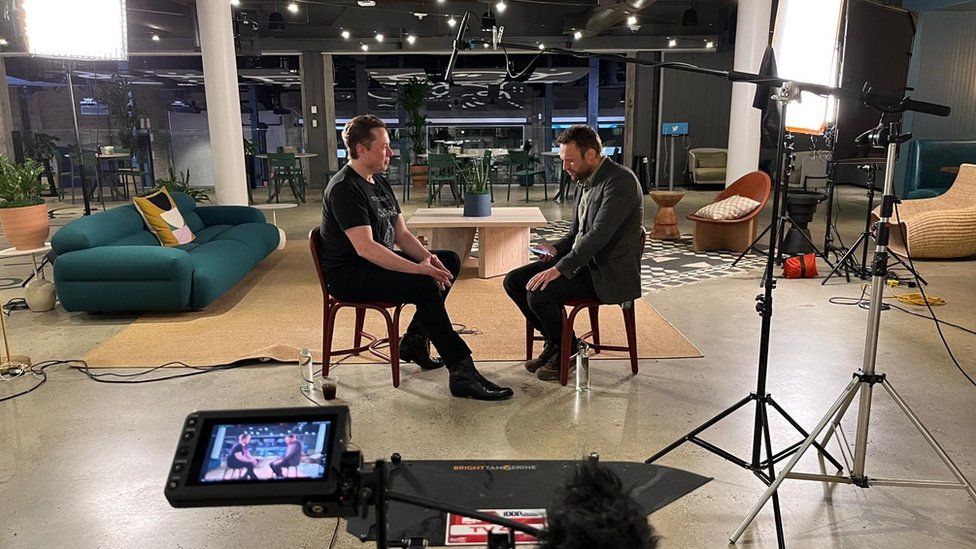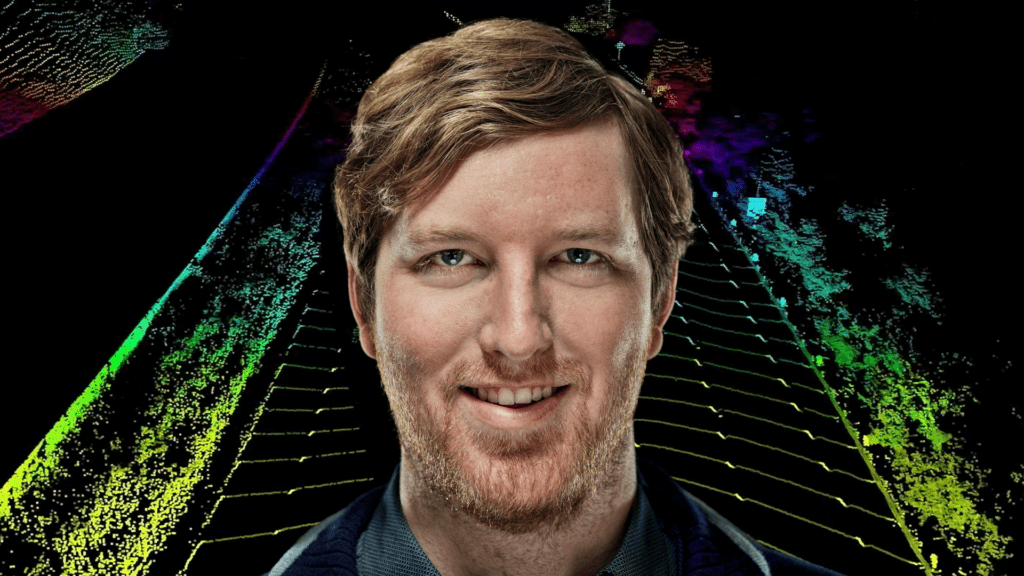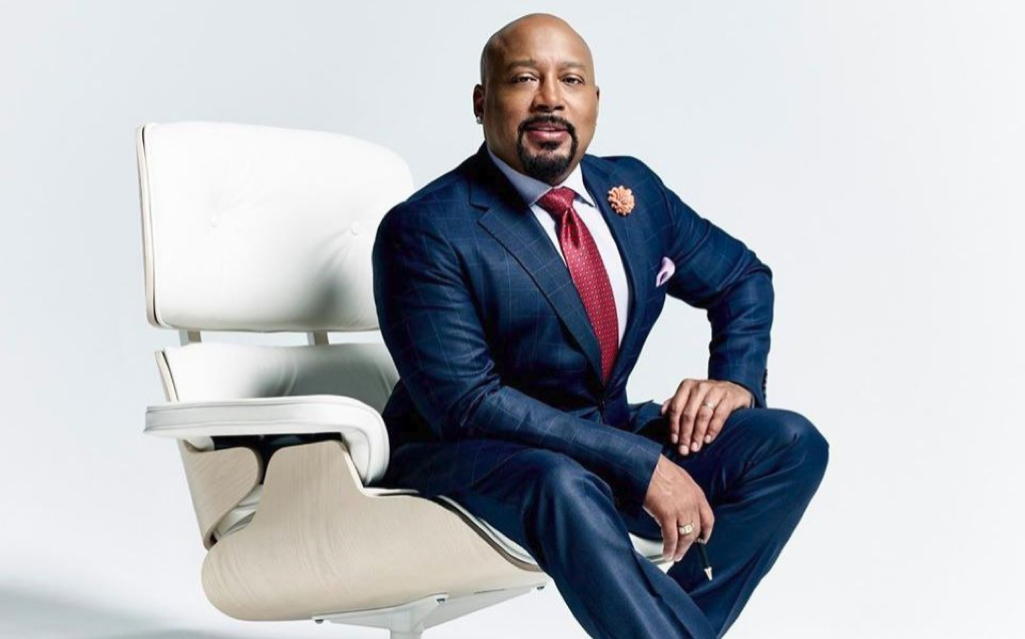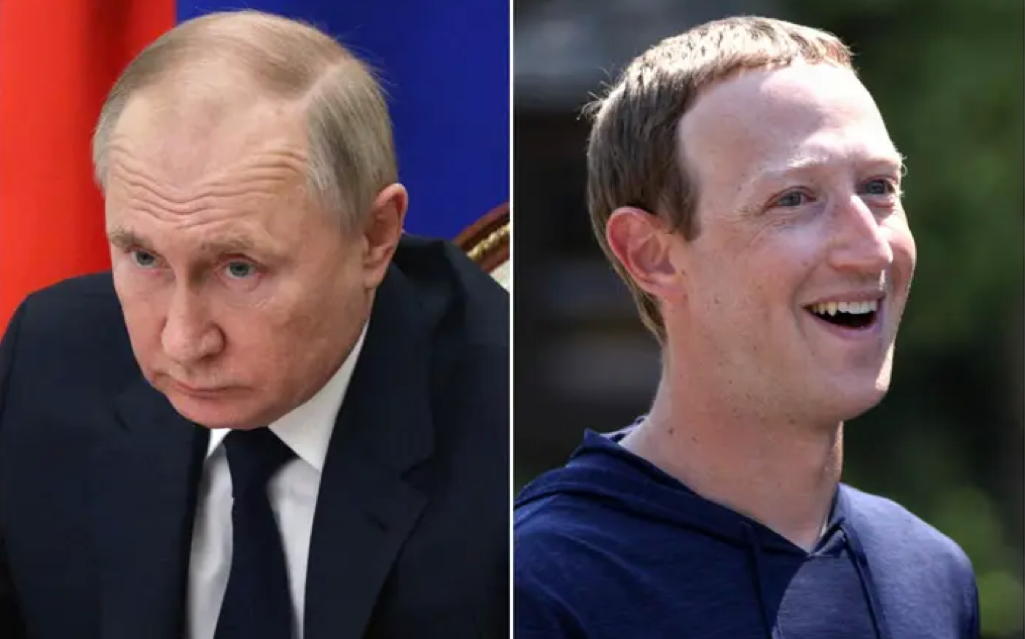Elon Musk has indicated in a hurriedly scheduled live interview with the BBC that running Twitter has been “quite painful” and “a rollercoaster.”
The multibillionaire businessman has indicated that he would sell the company to the right buyer.


Mr. Musk, who also owns Tesla Motors and the rocket company SpaceX, paid $44 billion (£35.4 billion) in October to acquire Twitter.
The mass layoffs, rumors, and his work habits were all discussed in the interview conducted at the company’s headquarters in San Francisco.
But he stated that he only completed the acquisition because a judge was going to order him to do so.
A new title for the BBC’s account on Twitter, “government-funded media,” will be changed to “publicly funded,” he affirmed.
Mr. Musk defended his management of the company throughout the interview, which he attempted to conduct as much as she did.
When asked about buying Twitter:
The second richest man in the world, when asked if he had any regrets about buying Twitter, stated the “pain level has been extremely high, this hasn’t been some kind of party.”
Mr. Musk commented on his tenure as CEO thus far, saying, “It’s not been boring.” A lot of ups and downs have occurred.
He went on to say that buying the company had been the right decision, despite the fact that it had been “really quite a stressful situation over the last several months.”
Mr. Musk began 2022 by amassing a stake in Twitter before making a hostile takeover bid. However, Twitter filed a lawsuit against him after he attempted to cancel the agreement.
Mr. Musk has told the BBC that things are going “reasonably well,” citing increased site traffic and a “working site” as evidence.
Because of his heavy schedule, he admits, “I sometimes sleep in the office,” adding, “I have a spot on a couch in a library that nobody goes to.”
In addition, he talked about the times when his tweets caused trouble, asking, “Have I shot myself in the foot with tweets several times? Yes.”
And, “I think I should not tweet after 3 am,” he continued.
When asked about government-funded media:
In response to a question regarding the “government-funded media” label that was recently added to the BBC’s official Twitter account, Elon Musk replied, “I know the BBC is generally not thrilled about being labeled state media.”
The company reached out to the social media behemoth earlier this week concerning the @BBC account’s designation in an effort to have the matter resolved “as soon as possible.”
The BBC has never been beholden to any other entity. The British public supports us through the license price’, it proclaimed.
Mr. Musk stated that Twitter will change the BBC’s classification to “publicly funded.” Even after the label was updated some hours later, it continued to direct users to a page that provided details about official and state-sponsored media outlets.
“We’re trying to be accurate,” he emphasized.
He continued, saying, “I actually do have a lot of respect for the BBC,” calling the interview a “good opportunity to ask some questions” and “to get some feedback on what we should be doing differently.”
The British Broadcasting Corporation (BBC) is the nation’s public broadcaster according to a Royal Charter granted by the British government. The BBC receives the vast majority of its funding from the license fees paid by British citizens ($3.8 billion in 2022).
Commercial and other operations, such as grants, royalties, and rental income, provide the remaining funding. The BBC World Service, which primarily broadcasts to listeners outside the United Kingdom, receives more than £90 million annually in government funding.
As most of Twitter’s advertisers have returned, Mr. Musk has stated the company is “roughly breaking even” financially.
He added that it had been difficult to reduce the company’s employment from just under 8,000 people when he bought it to roughly 1,500.
Platform developers have left Twitter
Not everyone was terminated in person, he conceded; “it’s not possible to talk with that many people face to face.”
Since Mr. Musk purchased Twitter, several of the platform’s developers have left, causing some to worry about its reliability.
While he did admit that there had been some problems, including temporary site outages, he assured us that everything was back to normal at this time.
Mr. Musk was also questioned about fake news and hate speech on Twitter during the live broadcast interview.
He said that since he took charge, misinformation on Twitter had decreased and that the number of fake news stories will go down much further if he succeeded in his efforts to deactivate automated accounts known as “bots.”
In contrast, there are many unbiased outsiders who would disagree. After Mr. Musk’s takeover, contact with popular accounts propagating misinformation rose, according to one research (among many others).
He often cast doubt on the objectivity of journalists and claimed to have greater faith in “ordinary people” to determine what was true.
Mr. Musk has stated that all blue ticks for accounts that were validated using legacy methods will be erased by the end of next week.
Strange Life of Musk
The interview “gave us some insight into the strange life of this billionaire,” according to Bruce Daisley, a former Twitter executive who oversaw operations in Europe, the Middle East, and Africa for eight years.
He admitted to me today that the only reason he completed the purchase of Twitter was that he thought a judge would order him to do so. It was a pretty quirky interview because he has never admitted that before.
Mr. Daisley further said that the interview demonstrated Mr. Musk’s inconsistency in his statements.
In terms of personal wealth, Elon Musk is ranked second on Forbes’ list of the world’s billionaires with an estimated $190 billion.




